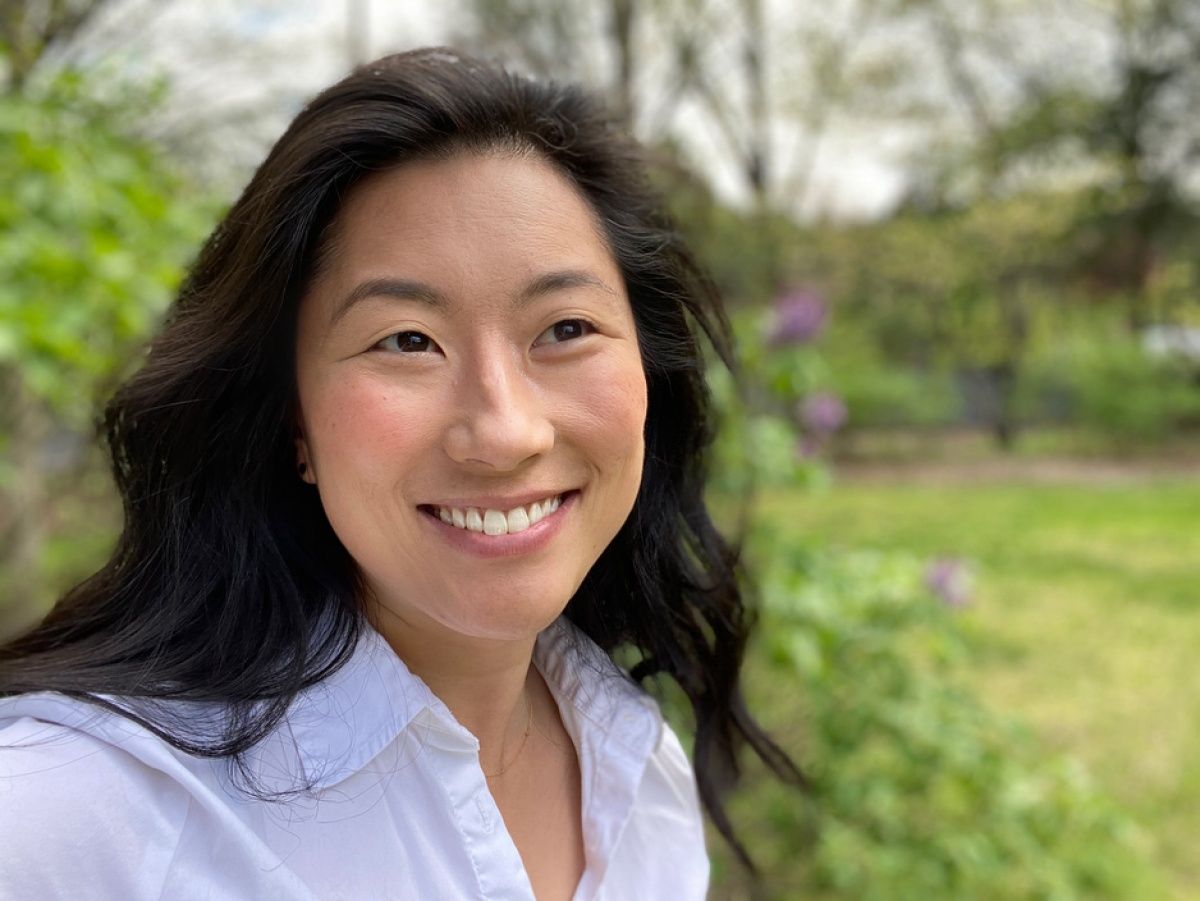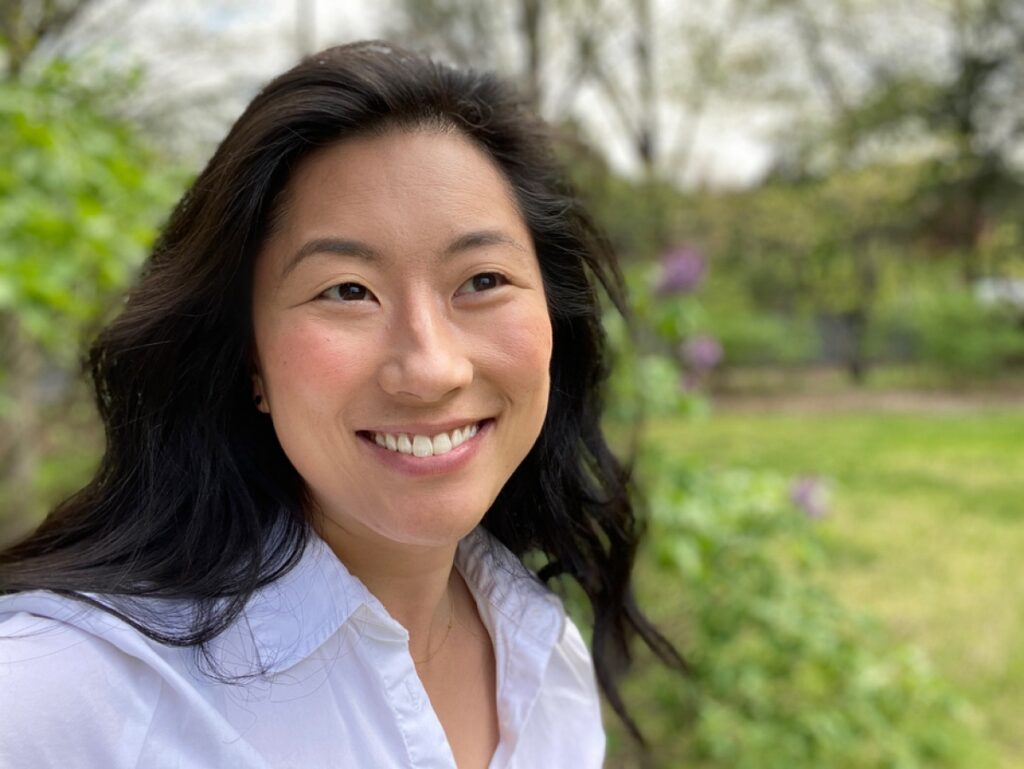Working In Global Health: Megan Striplin

PIHer reflects on most meaningful part of her work, what drew her to global health
Posted on June 3, 2021

When picturing the people who work in global health, doctors, nurses, and clinical staff likely come to mind. Those standing in labs, sitting at desks, or answering the phone are much less visible—but no less important. From research to fundraising to data collection, these non-clinical workers make the day-to-day work of global health possible, equipping clinical teams worldwide with the resources and support they need.
Megan Striplin is one of those workers. As a lab program associate with PIH’s Clinical Operations team, she has helped labs around the world develop operational plans, track their progress, and coordinate the flow of lifesaving supplies—work that has become all the more crucial during the global response to COVID-19.
In this edition of our Working In Global Health series, we caught up with Striplin. In our wide-ranging conversation, she reflected on why she changed career paths, what’s been the most meaningful part of her work at PIH, and why diversity matters—in global health and beyond.
You’ve been with PIH for more than three years, starting as a Project Coordinator with endTB and now as a Lab Program Associate. Before that, you were with the Clinton Health Access Initiative (CHAI). What inspired you to work in global health? And how did you end up at PIH?
Ten years ago, I was working as a microbiologist in the lab and realized that I did not want to work on the bench for the rest of my life. Then in 2013, the Boston Marathon bombing overwhelmed the city with grief and reminded me that life is short and that it is worth pursuing what fulfills you, even if you have to backpedal from your current trajectory. I knew I wanted to dedicate my work to social justice and addressing inequity, so I returned to school and got my MPH from Columbia University, specializing in Population & Family Health with a concentration in Global Health. I met so many smart people doing wonderful things, including during my time at CHAI. As I continued in my studies, I knew I had finally found my niche and was developing a skillset where I could contribute to the field.
After school, I returned to Boston. I was already familiar with PIH – I had volunteered here in the past, supporting the cholera vaccine work in Haiti. Luckily, I was able to join PIH as a member of the endTB team and from there, able to marry my backgrounds in lab work and public health, which is how I came to be a lab program associate with PIH’s Clinical Operations team.
What’s been the most meaningful part of working at PIH? Any campaigns or projects that really resonated with you?
Hands down, working one-on-one with colleagues from the care delivery sites is the most meaningful part of my work. I have learned so much from them, and their perspectives are invaluable to what I do. Visiting Botsabelo Hospital in Lesotho was an honor and an inspiration – seeing patients, not just an MDR-TB drug regimen, and reading the outcome “cured” in their medical chart is an experience I will never forget.
Also, the Lab team recently hosted the 4th annual PIH Laboratory Workshop, last month. This event brings together PIH lab managers from all the care delivery sites in order to provide training and updates related to lab performance, foster connections between the cross-site team, and provide the opportunity to showcase the work they have done over the last year in their respective labs. Of course the event was held virtually this year, but that allowed us to expand to additional members of the lab team, as well as our counterparts from various Ministries of Health and team clinicians. It felt so good to re-connect through this event and share our experiences with the pandemic and support one another through the common challenges we are all experiencing.
When we think of global health practitioners, we often picture doctors, nurses and others in clinical roles. But administrative roles are vital to the work. Can you talk about your work now, and how that ties into PIH’s mission?
Yes! The more I engage in this work, the more I see how operational support is vital and often overlooked. Community-based care consists of clinical care, of course, but at PIH we also focus on health systems strengthening. The 5 S’s (staff, stuff, space, systems, and social support) cannot happen without input and collaboration from teams like Labs, Procurement, Monitoring & Evaluation, and Advocacy, just to name a few.
This month is Asian American Pacific Islander (AAPI) Heritage Month in the U.S. What does AAPI Month mean to you? Are there any ways you celebrate it?
That is a good question and something that continues to evolve with my identity. Growing up in Northern Virginia as a Korean American adoptee, I didn’t reflect on this much as I was fortunate to have a racially diverse group of peers. However, due to years of accumulated micro-aggressions and the recent hate crimes amid the pandemic, I have come to realize that I do strongly identify as AAPI and that is something to be celebrated. I haven’t traditionally engaged in anything specific to recognize AAPI heritage during the month of May, but I am practicing self-love and consciously appreciating being a member of this community and how that helps me understand the complex heterogeneity of our society.
Asian American history isn’t routinely taught in the U.S. education system, or the history that is taught is woefully inadequate. What do you wish more people understood about Asian American history? Any people or events you want to call our attention to?
Growing up, the only Asian American history I was taught in the classroom was a brief mention of the Japanese internment camps during World War II. But in college at the University of Washington, there was a hip hop group (The Blue Scholars) that had a tribute song to the remarkable civil rights activist, Yuri Kochiyama. Influenced by her family’s internment in the 1940s in California, she went on to advocate for the rights of Japanese-American internees and support for Malcolm X and the anti-war movement. In 2014, the White House honored her for dedicating her life “to the pursuit of social justice, not only for the Asian American and Pacific Islander (AAPI) community, but all communities of color.”
On a personal note, my own father was raised in the same California town as Kochiyama, at around the same time. The internment of Japanese Americans compared to my white family (who like many others in a place of racial privilege, found success in the postwar years) serves as a tragically stark comparison of the direct and downstream effects of institutional racism. This has helped me recognize the ways I have benefited from generations of white privilege (as an adoptee raised by white parents and grandparents), in my own family, and how that perpetuates further inequities and imbalance of power in society.
The global health field has historically been led by white men in North America and Western Europe, and white people hold more than 80% of leadership roles in the nonprofit industry. As an Asian American woman working in global health, do you have any advice for women of colour looking to pursue a career in this field?
Don’t give in to the feelings of imposter syndrome and have confidence in yourself. It’s not easy, I know, but remember that you bring your unique perspective and background to the table and that holds incredible value. We cannot serve underrepresented communities without diverse perspectives.
For many of us, living through a global pandemic has warped our sense of time—it can feel like there’s too much and not enough. What has your working-from-home experience been like? And when you’re not working, what are you up to these days?
So true. For me, working-from-home has been an experience with all the feels. I appreciate the extra hours I have in my day to spend quality time with my family and, considering so many who have been out of work due to the pandemic, I am grateful to even be able to work-from-home. It doesn’t come without challenges though, which, for me is unplugging and “turning off” work-mode. I also miss my PIH coworkers, incredibly – it’s just not the same inquiring about their families or keeping in touch, virtually. It will be so nice to see smiles again and joke around, in-person. When not working, I try to spend as much time outside as possible. If indoors, I like to try new recipes in the kitchen, read, or knit something that I will most likely not finish.
Article originally published on pih.org



